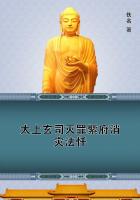On a particular day in her gloomy life a letter,addressed to her as Mrs.Willowes,reached Lady Uplandtowers from an unexpected quarter.
A sculptor in Pisa,knowing nothing of her second marriage,informed her that the long-delayed life-size statue of Mr.Willowes,which,when her husband left that city,he had been directed to retain till it was sent for,was still in his studio.As his commission had not wholly been paid,and the statue was taking up room he could ill spare,he should be glad to have the debt cleared off,and directions where to forward the figure.Arriving at a time when the Countess was beginning to have little secrets (of a harmless kind,it is true)from her husband,by reason of their growing estrangement,she replied to this letter without saying a word to Lord Uplandtowers,sending off the balance that was owing to the sculptor,and telling him to despatch the statue to her without delay.
It was some weeks before it arrived at Knollingwood Hall,and,by a singular coincidence,during the interval she received the first absolutely conclusive tidings of her Edmond's death.It had taken place years before,in a foreign land,about six months after their parting,and had been induced by the sufferings he had already undergone,coupled with much depression of spirit,which had caused him to succumb to a slight ailment.The news was sent her in a brief and formal letter from some relative of Willowes's in another part of England.
Her grief took the form of passionate pity for his misfortunes,and of reproach to herself for never having been able to conquer her aversion to his latter image by recollection of what Nature had originally made him.The sad spectacle that had gone from earth had never been her Edmond at all to her.O that she could have met him as he was at first!Thus Barbara thought.It was only a few days later that a waggon with two horses,containing an immense packing-case,was seen at breakfast-time both by Barbara and her husband to drive round to the back of the house,and by-and-by they were informed that a case labelled 'Sculpture'had arrived for her ladyship.
'What can that be?'said Lord Uplandtowers.
'It is the statue of poor Edmond,which belongs to me,but has never been sent till now,'she answered.
'Where are you going to put it?'asked he.
'I have not decided,'said the Countess.'Anywhere,so that it will not annoy you.'
'Oh,it won't annoy me,'says he.
When it had been unpacked in a back room of the house,they went to examine it.The statue was a full-length figure,in the purest Carrara marble,representing Edmond Willowes in all his original beauty,as he had stood at parting from her when about to set out on his travels;a specimen of manhood almost perfect in every line and contour.The work had been carried out with absolute fidelity.
'Phoebus-Apollo,sure,'said the Earl of Uplandtowers,who had never seen Willowes,real or represented,till now.
Barbara did not hear him.She was standing in a sort of trance before the first husband,as if she had no consciousness of the other husband at her side.The mutilated features of Willowes had disappeared from her mind's eye;this perfect being was really the man she had loved,and not that later pitiable figure;in whom love and truth should have seen this image always,but had not done so.
It was not till Lord Uplandtowers said roughly,'Are you going to stay here all the morning worshipping him?'that she roused herself.
Her husband had not till now the least suspicion that Edmond Willowes originally looked thus,and he thought how deep would have been his jealousy years ago if Willowes had been known to him.
Returning to the Hall in the afternoon he found his wife in the gallery,whither the statue had been brought.
She was lost in reverie before it,just as in the morning.
'What are you doing?'he asked.
She started and turned.'I am looking at my husb-my statue,to see if it is well done,'she stammered.'Why should I not?'
'There's no reason why,'he said.'What are you going to do with the monstrous thing?It can't stand here for ever.'
'I don't wish it,'she said.'I'll find a place.'
In her boudoir there was a deep recess,and while the Earl was absent from home for a few days in the following week,she hired joiners from the village,who under her directions enclosed the recess with a panelled door.Into the tabernacle thus formed she had the statue placed,fastening the door with a lock,the key of which she kept in her pocket.
When her husband returned he missed the statue from the gallery,and,concluding that it had been put away out of deference to his feelings,made no remark.Yet at moments he noticed something on his lady's face which he had never noticed there before.He could not construe it;it was a sort of silent ecstasy,a reserved beatification.What had become of the statue he could not divine,and growing more and more curious,looked about here and there for it till,thinking of her private room,he went towards that spot.
After knocking he heard the shutting of a door,and the click of a key;but when he entered his wife was sitting at work,on what was in those days called knotting.Lord Uplandtowers'eye fell upon the newly-painted door where the recess had formerly been.
'You have been carpentering in my absence then,Barbara,'he said carelessly.
'Yes,Uplandtowers.'
'Why did you go putting up such a tasteless enclosure as that--spoiling the handsome arch of the alcove?'
'I wanted more closet-room;and I thought that as this was my own apartment--'
'Of course,'he returned.Lord Uplandtowers knew now where the statue of young Willowes was.















